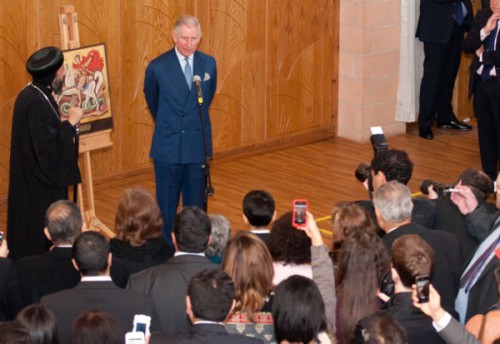
The question of freedom of religion or belief (FoRB in the international jargon) is a challenging and sensitive one. It is a fundamental right, touching the conscience of the individual, underpinning many other rights. As we focus on the issue of equality on Blog Action Day, we must ensure that FoRB remains at the top of our agenda.
It is all the more important because, globally, even simple tolerance of other religions, let alone religious freedom (or freedom not to have a religion), appears to be at an increasing premium. Recent events in Iraq and Syria, for example, have only highlighted the closing space for Christians and other minority communities in the Middle East and North Africa. In parts of Asia, we see a growing trend in the alignment of nationalist and religious intolerance. These range from claims to exclusivity (e.g. the banning to Christians of the use of the word “Allah” in parts of Malaysia), to discrimination (such as the very uneven application of blasphemy laws in Pakistan), to outright persecution (such as unpunished attacks on members of Muslim minority groups in some areas of Burma or Sri Lanka). In Europe, anti-Semitism appears, again, to be on the rise. An attack on members of one faith is an attack on the freedoms of all, something Muslim, Christian and other faith leaders have been making very clear in recent weeks. Yet, if anything, the situation is getting worse.
Such intolerance contributes to instability, inequality, under-development and forced migration. Which is why it must be the business of states, as well as the business of NGOs, religious leaders and others. For that reason, I shall be dedicating much of this month to the issue.
On 14 October, I am joining Foreign Office Minister Baroness Anelay when she chairs the FCO’s independent Advisory Group on Freedom of Religion and Belief, looking at where the UK might have influence and should be prepared to intervene. I shall also be talking to FCO and Ministry of Defence colleagues about the importance to diplomats of an understanding of the relationship between religion and foreign policy. Later this month, I shall join European and other diplomats in Milan to look at other aspects of this work.
For the Holy See, freedom to worship, to practise your faith, to believe, to educate your children in that belief, are freedoms that must underpin any free, civilised and democratic society. The United Kingdom, recognising that there are no easy fixes, agrees. It would be too simple to look around the world and resign ourselves to the counsels of despair. We cannot allow that to happen.
